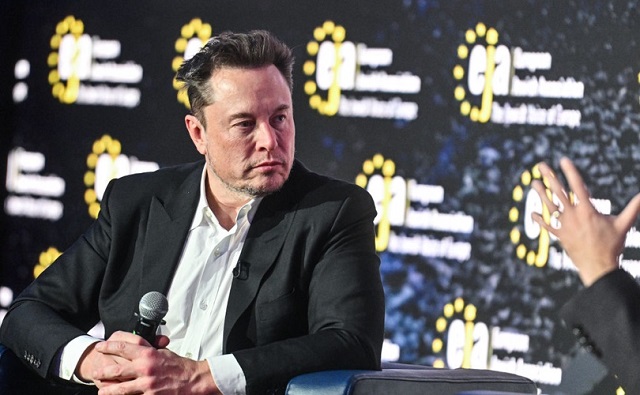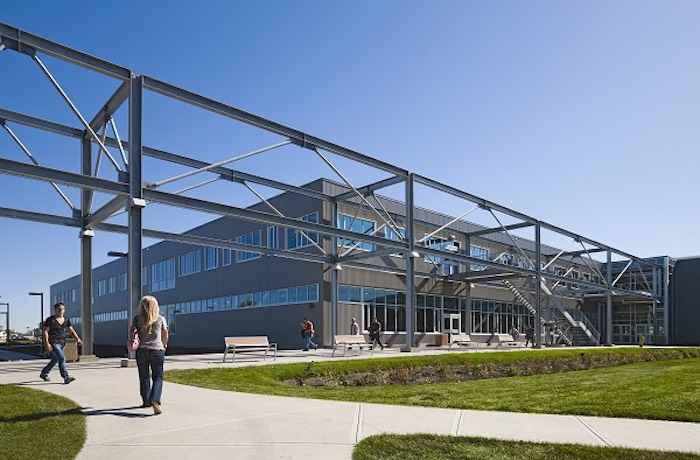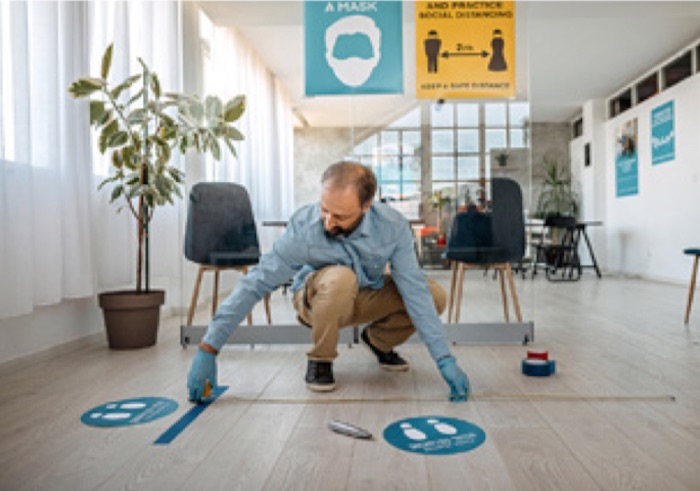Education
Elon Musk’s controversial Neuralink completes first-ever chip implantation in human brain

From LifeSiteNews
The billionaire mogul said the subject ‘is recovering well.’
Billionaire mogul Elon Musk’s controversial company Neuralink successfully implanted a computer chip into the brain of a human subject for the first time on Sunday. The technology and its potential impact on humanity has sparked serious ethical concerns.
Musk announced the news in a post on his social media platform X (formerly Twitter) on Monday.
“The first human received an implant from [Neuralink] yesterday and is recovering well,” he said.
The first human received an implant from @Neuralink yesterday and is recovering well.
Initial results show promising neuron spike detection.
— Elon Musk (@elonmusk) January 29, 2024
Musk said the company’s first product, named “Telepathy,” “[e]nables control of your phone or computer, and through them almost any device, just by thinking.”
“Initial users will be those who have lost the use of their limbs,” he said. “Imagine if Stephen Hawking could communicate faster than a speed typist or auctioneer. That is the goal.”
The news comes after the U.S. Food and Drug Administration (FDA) approved human trials for the novel technology under an “investigational device exemption” in May 2023. In September, the company announced it had “received approval from the reviewing independent institutional review board and our first hospital site to begin recruitment for our first-in-human clinical trial.”
Through the trials, researchers are attempting to determine whether Neuralink’s “BCI [brain computer interface]” functions to help “people with paralysis to control external devices with their thoughts.”
But restoring motor function to people with mobility impairments isn’t the only or even the primary goal of the brain chips, a reality Musk hinted at in his Monday social media posts.
The tech entrepreneur, who founded Neuralink in 2016, has been open about his belief in the technology’s potential to head off a dystopian, science fiction-esque outcome in which Artificial Intelligence (AI) becomes “much smarter than humans” and essentially takes over society.
In a speech at the California Academy of Sciences in San Francisco in 2019, Musk explicitly stated that the “point” of Neuralink is “to secure humanity’s future as a civilization relative to AI.”
“After solving a bunch of brain-related diseases, there is the mitigation of the existential threat of AI,” he said, arguing the technology will “be really important at civilization level scale.” According to Musk, only by “merging” with AI will humans develop the capacity to stay ahead of and protect themselves from it.
Musk has suggested that the chips will ultimately enable users to do things like “save and replay memories,” functioning as a “backup drive for your non-physical being, your digital soul.”
“The future is going to be weird,” he joked.
RELATED: World Economic Forum speaker touts technology that allows your boss to monitor your brain activity
Critics of the technology have raised strong and persistent concerns about the general loss of privacy and autonomy occasioned by the widespread use of the technology, as well as the potential for it to be weaponized against citizens by tyrannical governments.
Researchers assessing the impact of neurotechnology have identified “four new rights that may become of great relevance in the coming decades” amid the rise of implantable devices: “the right to cognitive liberty, the right to mental privacy, the right to mental integrity, and the right to psychological continuity.”
The technology presents serious philosophical and religious dilemmas as well.
Writing on the issue for The Catholic Stand in 2019, Ph.D. candidate and pro-life writer Christopher Reilly posed several major questions related to the technology’s impact on human beings, including: “Will use of the technology further erode respect for human dignity? … Will our spiritual identities become confused or damaged?” and “Does the technology enhance or detract from living in holiness?”
“The only thing obvious about all of this is that we need the guidance of the Church and tech-savvy theologians and philosophers,” Reilly wrote. “[A]nd we need that guidance very soon.”
Education
Schools shouldn’t sacrifice student performance to vague notions of ‘equity’

From the Fraser Institute
According to a new study published by the Fraser Institute, if Canada wants to remain competitive with emerging economies around the world, we must increase our math, science and reading scores—and not simply pursue high levels of “equity and inclusion” as the primary goal for our schools.
Indeed, highly equitable and inclusive schools—with declining PISA scores, as is currently the case in Canada—do a disservice to students and society at large.
Why? Because higher test scores translate into greater “knowledge capital”—that is, the full body of knowledge available to an economy—and boost economic growth (and, incidentally, the tax revenues that fund our schools).
Indeed, the goal should be equitable access to a quality education. And the most realistic and meaningful way to measure student progress is through PISA tests, which every three years assess the performance of 15-year-olds worldwide in core subjects of math, science and reading rather than the limited curriculum objectives used in provincial testing, which can only show progress or decline within individual school systems. In today’s world, where competition is truly global, we must know how our students and schools perform compared to their peers in other countries, especially the “Asian Tigers” of Hong Kong, Korea, Singapore and Tiawan whose rapidly growing economies have been driven by rising PISA scores.
Obviously, countries with higher test scores can teach other countries how to improve—although there are limits and some traps here. Attempting to cut and paste Singapore’s or Korea’s much more meritocratic systems of highly competitive student assessment and selection would be impractical and impolitic in Canada. Even so, policymakers should consider reinstating more meaningful meritocratic norms in Canadian schools to encourage and recognize academic achievement. Nothing succeeds like success, except recognized and rewarded success.
Closer to home, other provinces could benefit from considering why Quebec is such a stellar performer in math and why Alberta has the highest overall PISA test score average of all provinces.
But fair warning, recent attempts at school improvement in Canada show that top-down one-size-fits-all changes—including extending compulsory attendance, reducing average class size and tinkering with course content—have had little positive effect on student performance, although they may please teacher unions. If policymakers want to achieve more equitable success for more students, they should introduce more flexibility, school autonomy and choice into our top-heavy centrally regulated school systems. In this respect it may be no accident that the three highest performing, mid-spending provincial K-12 education systems (Alberta, Quebec and Ontario) offer relatively high levels of school choice, although of quite different kinds.
Equity and inclusion are noble goals, but they shouldn’t interfere with student progress. There’s too much at stake, for students and the country.
Author:
Alberta
Expansion planned for Centre for Innovation in Manufacturing at Red Deer Polytechnic

Investing in innovation at Red Deer Polytechnic |
Alberta’s government is expanding student capacity and creating a modern learning environment at Red Deer Polytechnic that will help graduates succeed in the economy of tomorrow.
To support emerging opportunities for students, Alberta’s government will invest $12.9 million to expand the Centre for Innovation in Manufacturing Technology Access Centre (CIM-TAC) at Red Deer Polytechnic (RDP). CIM-TAC is an applied research and innovation centre that gives companies access to state-of-the-art prototyping and manufacturing equipment, along with a multi-disciplinary team with the expertise to turn brilliant ideas into market-ready products.
As Alberta’s economy grows and diversifies, job creators will increasingly seek employees with the skills required to work in advanced manufacturing.
Construction will begin in early 2025 and will increase the centre’s applied research, education and training capacity. The expanded CIM-TAC will grow to provide work-integrated learning opportunities for an estimated 450 post-secondary students and training through workshops and events to an additional 2,000 students annually by 2030. Additionally, more than 500 junior and senior high school students will take part in dual credit programs at the CIM-TAC.
“Investing in this expansion of CIM-TAC will give students at RDP access to cutting-edge technology and skills to succeed in the economy of tomorrow. The strategic investments we’re making in Budget 2024 are part of a forward-looking path to support the goals of our post-secondary institutions, grow Alberta’s economy and create jobs.”
“The expansion will allow Alberta-based manufacturers across multiple sectors to have greater ability to develop, test and scale their ideas. Students will be engaged at the forefront of made-in-Alberta technologies and manufacturing solutions.This investment will help meet high demand from entrepreneurs and industry for applied research and will take the facility beyond its current capabilities to become an advanced technology training and hands-on learning centre.”
“This expansion project will build on the CIM-TAC’s 15 years of success and leverage the centre’s industry partnerships and manufacturing expertise to provide even more capacity for applied research, as well as education, training and work-integrated learning opportunities for students. We thank the Government of Alberta for this investment that will benefit not only RDP students and researchers, but also the entire central Alberta region and its critical industries like health care, agriculture, energy and construction.”
“Manufacturing and advanced manufacturing are driving job-creation, economic growth and made-in-Alberta solutions that improve the lives of people around the world and right here at home. The funding to expand RDP’s CIM-TAC is an investment that will allow Alberta companies greater access to the tools, technology and next generation of skilled talent that will allow our industry to solve real-world challenges, develop better products and ultimately increase productivity.”
Quick facts
- The expansion of CIM-TAC at RDP will support a variety of sectors through advanced manufacturing capabilities, including energy innovation, transportation, aviation and agriculture. The centre will also support RDP’s future expansion into more medical device manufacturing and health-care innovations to support both patients and providers.
- RDP’s expansion of the CIM-TAC will grow the facility’s footprint from 15,000 square feet to 25,000 square feet.
- The CIM-TAC currently houses $7.6 million of advanced manufacturing equipment.
- In 2022, RDP attracted more than $2 million in applied research investment. RDP also completed 64 projects for 57 companies and participated in more than 1,300 engagements with industry partners.
- Since the CIM-TAC’s inception in 2009, RDP has supported more than 300 industry partners (including repeat clients).
-

 COVID-192 days ago
COVID-192 days agoThe New York Times Admits Injuries from COVID-19 Shots
-

 National1 day ago
National1 day agoDespite claims of 215 ‘unmarked graves,’ no bodies have been found at Canadian residential school
-

 Brownstone Institute24 hours ago
Brownstone Institute24 hours agoThe WHO’s Proposed Pandemic Agreements Worsen Public Health
-

 Energy2 days ago
Energy2 days agoFederal government continues to reject golden opportunities to export LNG
-

 Energy2 days ago
Energy2 days agoBuckle Up for Summer Blackouts: Wind Is Already Failing Texas in Spring
-

 COVID-192 days ago
COVID-192 days agoFormer COVID coordinator Deborah Birx now admits jabs could have injured ‘thousands’
-

 illegal immigration1 day ago
illegal immigration1 day agoPanama’s Incoming President Wants To Shut Down His Country’s Most Treacherous Route For Migrants — But Will It Work?
-

 conflict2 days ago
conflict2 days ago‘It Makes No Sense’: Experts Puzzled By Biden Admin’s Claim That Rafah Invasion Wouldn’t Help Israel Defeat Hamas







